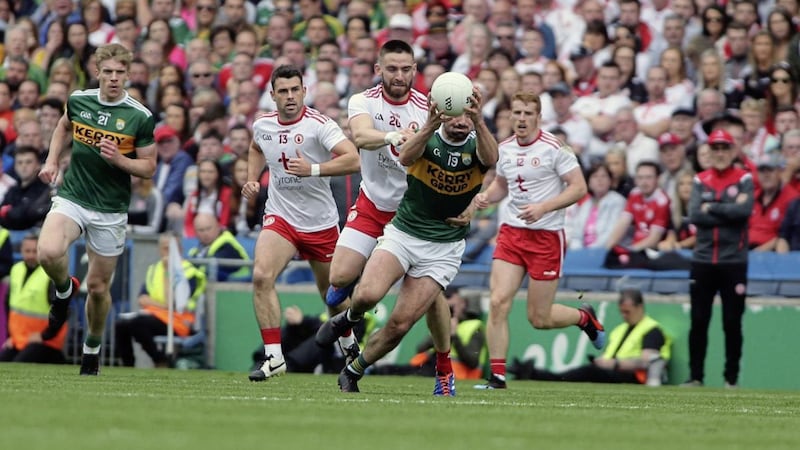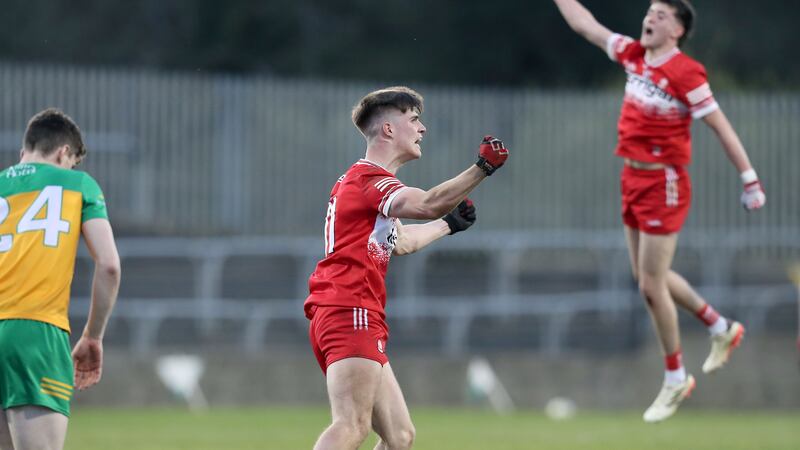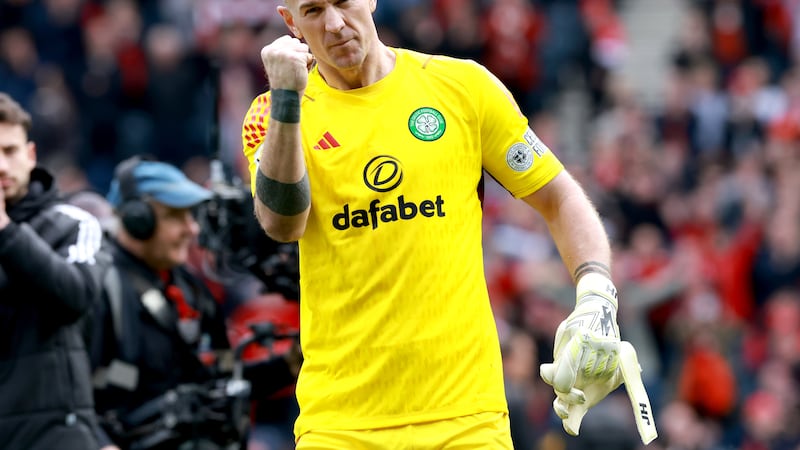LAST week I had the privilege of spending a couple of hours in the company of Down’s double All-Ireland winning manager Pete McGrath.
The couple of hours flew by. We talked among other things Down '91 and '94.
You kind of knew the answers to some of the questions - but you still wanted to hear Pete wax lyrical about some of the great players he'd managed.
We talked Greg Blaney ("Kevin Heffernan once said Brian McGilligan was the strongest man he ever saw - but that Greg Blaney was the hardest.")
We talked Mickey Linden and the "scorched earth" he left in his wake during the early 90s.
And how James McCartan was "the most dynamic player I ever saw."
There was a thing called player responsibility, when players took control or wrestled control of big games.
People like Greg Blaney, 'Wee' James, Mickey Linden, Ross Carr, DJ Kane - the list is endless - decided the outcome of games on a regular basis.
The previous afternoon Tyrone had just exited the All-Ireland semi-finals to Kerry.
In the second half, Tyrone's limitations were laid bare on the Croke Park turf.
McGrath's was more of a general focus on the malaise of modern football.
"A lot of matches you go to watch you don’t see a lot of individual play," he said.
"I see players doing stuff with the ball that I could still do. If I was on the field and I got a ball from you, I could pass to here or there [gesturing a short hand pass], and this might go on for three or four minutes and you’re thinking: ‘That is so banal looking, so ordinary.’
"Now, there were bad matches 20 years ago but if you took a snapshot of any game back then, it was more about individual battles and more about individual brilliance.”
He added: "If coaching is going to go the way it is we are going to squeeze out, suffocate really, really good forwards and players taking the initiative and expressing themselves. It’s going to be squeezed out of them because it is not the safe thing to do.
"It’s a case of: ‘Don’t try that kick pass, don’t try that eye-of-a-needle pass – keep the ball.’"
It’s convenient to dismiss McGrath as a romantic traditionalist, but to do so wouldn’t address the problem the modern game has.
It’s the lack of player responsibility – personality, even – that is being coached out of the game.
Somewhere along the way fitness overtook innovation. What we’re watching are the fittest players in the country and not necessarily the best ones.
That’s a natural consequence of when a sport becomes a Darwinian pursuit. Given the pace of modern economic life, only a small number of players can keep up with the demands of the inter-county game.
For many players, that fifth night in a row out of the house was the straw that broke the camel’s back of their accommodating employer, or the point when their worn-out childminders just wanted to be simply grandparents again.
And so the talent drain begins.
Modern-day players can run all day and they can spoil the most creative traits of the opposition but only a small amount of them can think beyond the conditioned drills and efficiency percentages that they've been coached to the 'nth degree.
Football intelligence suffers as a result.
Last Sunday, Tyrone’s second half performance against Kerry made for bleak viewing.
For it’s on the Championship canvas of Croke Park where you see every blemish. Once Kerry went in front, nobody was equipped to take charge of getting Tyrone back in the game.
Apart from Cathal McShane, nobody took responsibility to deny Kerry’s second half charge.
Kieran McGeary may have given cheap possession away that directly led to Stephen O’Brien’s killer goal in the 56th minute – but there were four or five other Tyrone players who made bad choices and didn’t sense the danger.
At times we all get carried away with tactics, sweepers and gameplans but Kerry reached this year’s All-Ireland final because they had more players than Tyrone who took responsibility at key moments, players who could think for themselves and made better decisions.
Kerry won because of Stephen O’Brien’s football intelligence.
Kerry won because Paul Geaney invariably gave the right passes at the right times.
Kerry won because David Clifford has too much quality to be kept quiet for two consecutive halves of football.
Kerry won because they had better players; better forwards.
Mickey Harte said afterwards that Tyrone are still a work-in-progress.
But four years after the county’s U21 All-Ireland success and the promotion of their best players to the senior ranks during that period, describing them as a work-in-progress isn’t convincing.
What is intriguing about the last few years of Harte’s stewardship has been his ability to make four All-Ireland semi-finals and one final since 2015.
You could persuasively argue that keeping Tyrone competitive on the All-Ireland stage with a fairly average group of players is one of Harte’s great achievements.
At some point over the last few seasons the Tyrone management team must have made a judgement call: that the best way to keep reaching the latter stages of the All-Ireland would be to play defensively and rely almost exclusively on a running game.
But no matter how many tweaks you make, it’s at Croke Park where your limitations are revealed.
All it takes is one team to be better than you - and Dublin and Kerry are certainly ahead of the Red Hands.
What the last few years has taught us is the coaching needs to be braver in Tyrone, and that they badly need to unearth more quality, particularly in attack, if they have designs on ever winning a fourth All-Ireland title.








